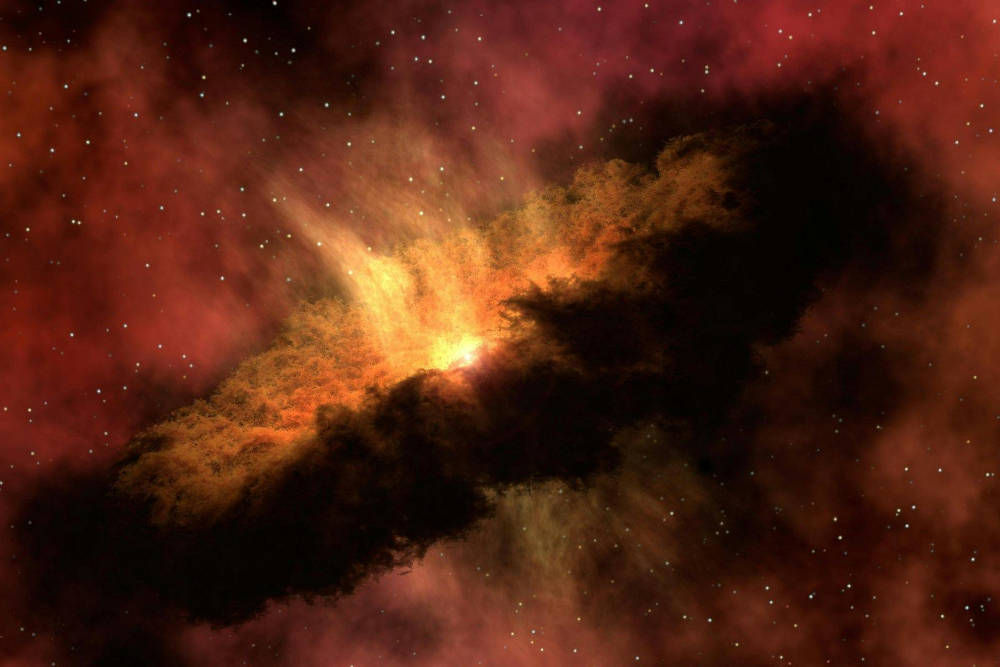
Why does anything exist at all? And if it does, what governs its existence? From ancient philosophy to modern science, this question has challenged human minds for centuries. Beneath the surface of all matter, energy, and consciousness lies a deep truth—a law of existence that seems to organize and sustain the entire universe.
But what is this law? Is it physical, spiritual, or something beyond both?
This article explores various perspectives—spiritual, scientific, and philosophical—to unpack the law of existence in the universe, and what it might mean for you and your place in the cosmos.
Panaprium is independent and reader supported. If you buy something through our link, we may earn a commission. If you can, please support us on a monthly basis. It takes less than a minute to set up, and you will be making a big impact every single month. Thank you!
1. The Principle of Being: Everything That Exists Has a Cause
One foundational idea across many traditions is this: nothing comes from nothing. This is known as the Principle of Sufficient Reason, proposed by philosophers like Leibniz. It states that everything that exists must have a reason or cause for its existence.
In science, this connects to the Law of Causality—that every effect has a cause. From stars being born in galaxies to your thoughts and emotions, everything appears to be the result of something else.
This suggests a deep pattern in the universe: existence is not random—it’s ordered, intentional, and deeply interconnected.
2. Energy Can’t Be Created or Destroyed
Science gives us another view of existence through the First Law of Thermodynamics:
“Energy cannot be created or destroyed, only transformed.”
This law implies that the building blocks of existence—matter and energy—have always been present in some form. Even if forms change, the substance of existence remains constant.
This idea carries a profound spiritual implication: if everything is made of the same energy, then all things are deeply connected. You, the Earth, stars, light, thoughts—all are energy vibrating at different levels.
So the law of existence might be: everything is energy, and energy is eternal.
3. Consciousness Plays a Role in Existence
Quantum physics challenges our classical understanding of the universe. In the famous double-slit experiment, particles like electrons behave differently depending on whether they are being observed. This suggests that consciousness affects reality.
Some scientists and philosophers interpret this as evidence that conscious awareness is a fundamental part of existence. Instead of matter giving rise to consciousness, it may be the other way around—consciousness gives rise to matter.
This lines up with ancient spiritual views, especially in Vedanta and mystic traditions, which claim:
“Consciousness is the ground of all being.”
If this is true, then the law of existence may be: what we call reality is shaped by awareness.
4. The Law of Vibration: Everything Is in Motion
Another universal law found in both science and spiritual teachings is the Law of Vibration.
At the atomic level, everything is vibrating. Nothing is truly still. Even solid objects are made of atoms constantly moving. This idea appears in metaphysical teachings too, where it's believed that everything—from emotions to thoughts—vibrates at specific frequencies.
High vibrations (like love, joy, peace) align with life and growth.
Low vibrations (like fear, anger, shame) align with decay and disconnection.
So another possible law of existence: to exist is to vibrate, and the quality of vibration affects the nature of existence.
5. Unity in Diversity: The One and the Many
Look at the universe—from galaxies to grains of sand, from humans to trees. Diversity is everywhere, yet patterns repeat. Spirals, golden ratios, symmetry, and fractals appear in nature, art, even in DNA. This reflects a deeper principle:
The universe is one, expressed through many forms.
Spiritual traditions across the globe echo this truth. From Christianity’s idea of one God in all creation, to Hinduism’s Brahman appearing in all things, to Buddhism’s concept of interbeing—this unity is central.
The law of existence here is: all things are connected expressions of one universal essence.
6. Change Is Constant: Impermanence and Evolution
Another essential truth of existence: everything changes.
In Buddhism, impermanence (anicca) is one of the three marks of existence. It reminds us that nothing stays the same—thoughts, bodies, seasons, relationships, stars… all are in flux.
Science agrees. The universe is expanding. Species evolve. Cells die and regenerate. Change isn’t just a part of existence—it’s the engine of existence.
This gives rise to the law: to exist is to evolve. Nothing is fixed. Existence is a flow, not a fixed state.
7. The Law of Balance: Opposites Sustain Existence
From physics to philosophy, balance between opposites is essential. Positive and negative charges hold atoms together. Night balances day. Rest balances action. Joy is known through sorrow.
The ancient Taoist concept of Yin and Yang reflects this beautifully. It says the universe is held together by opposite but complementary forces.
Without darkness, light has no meaning.
Without death, life has no edge.
Without contrast, there is no creation.
So, a core law of existence: everything exists in dynamic balance with its opposite.
8. Existence Has Meaning and Direction
Is the universe random, or is it moving toward something?
Many belief systems say there is a purpose behind all things. In Christianity, the universe exists to reveal God’s love and character. In Hinduism, existence is a journey of the soul returning to oneness with the Divine. In modern cosmology, some see the universe fine-tuned for life, hinting at direction or intelligence.
Purpose may not always be obvious, but many find comfort and guidance in believing that life is not meaningless.
So another law: existence moves with intention, even if we don’t always see the full picture.
9. Free Will and Responsibility Are Part of Existence
Humans are unique in our ability to ask why, imagine futures, and choose our actions. With this awareness comes responsibility.
The Bible and other sacred texts teach that while we are part of the larger order, we also shape it. We’re not passive observers—we’re co-creators.
“You shall reap what you sow.” — Galatians 6:7
This speaks to the Law of Cause and Effect, also known in Eastern traditions as karma. What we do shapes what comes back to us.
Therefore, a powerful law of existence is: your choices matter—they ripple through time and space.
10. Love and Connection Sustain Existence
At the heart of existence may lie something simple but profound: love.
Love is not just emotion—it’s connection, compassion, unity, and care. From the bonding of atoms to the bonds between humans, relationships sustain life.
In Christianity, the Bible says:
“God is love” — 1 John 4:8
In other words, the essence of being is relational.
The universe is not just made of matter—it is held together by connection. From the pull of gravity to the pull of empathy, everything exists in relationship to something else.
So perhaps the deepest law is: to exist is to be in relationship—and love is the highest form of existence.
Final Thoughts: What Does This Mean for You?
If these laws are true—if existence is about energy, connection, vibration, consciousness, balance, and love—then your life matters more than you might think.
-
You are not separate from the universe—you are a part of its flow.
-
You are not random—you are shaped by and contributing to a larger pattern.
-
Your thoughts, actions, and choices carry energy that impacts everything around you.
-
Your purpose is not just to survive, but to grow, connect, and reflect something greater.
Whether you see these laws as spiritual truths, scientific realities, or philosophical insights, they all point to the same idea:
Existence is meaningful. It’s intelligent. It’s alive. And you are a vital part of it.
So the next time you look at the stars, feel joy or sorrow, create something, or connect with another person—remember: you're not just experiencing existence. You are existence expressing itself in a unique form.
Was this article helpful to you? Please tell us what you liked or didn't like in the comments below.
About the Author: Alex Assoune
What We're Up Against
Multinational corporations overproducing cheap products in the poorest countries.
Huge factories with sweatshop-like conditions underpaying workers.
Media conglomerates promoting unethical, unsustainable products.
Bad actors encouraging overconsumption through oblivious behavior.
- - - -
Thankfully, we've got our supporters, including you.
Panaprium is funded by readers like you who want to join us in our mission to make the world entirely sustainable.
If you can, please support us on a monthly basis. It takes less than a minute to set up, and you will be making a big impact every single month. Thank you.































0 comments